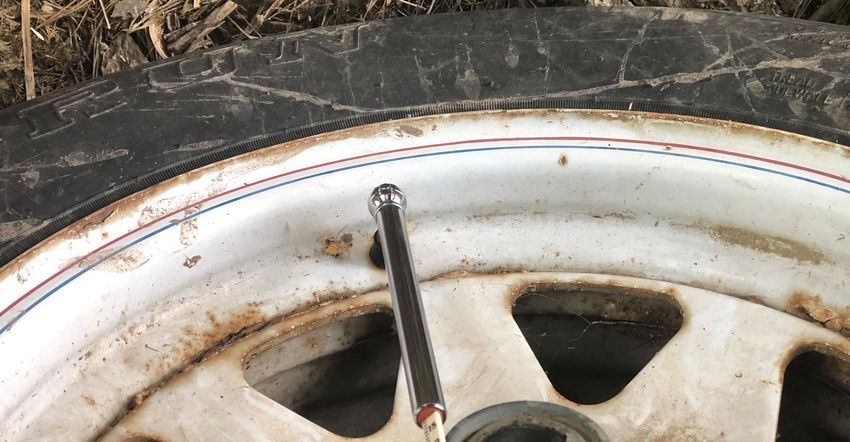
Maybe you’ve heard those commercials where the rear tire of a vehicle calls the driver, informing her it’s scheduled to blow out at 4:49 p.m. on the road. “No, it can’t be rescheduled,” the tire says. But it is considerate enough to ask, “Do you want text confirmation when I blow out?”
The driver figures that won’t be necessary — she will know.
The commercial is for RV insurance, but it could fit as an attention-getter for a tire commercial, as well. Only the gimmick might be that if you don’t pay attention to your tires and show them some love, you just might have a blowout at an inopportune time.
Recently, a family who travels to several livestock shows experienced a tire blowout on the way to a major show. Once they arrived, other exhibitors shared similar experiences while traveling to shows sometime this summer.
Is something wrong with tires that happen to end up on livestock trailers? Tire industry experts say it’s more likely that the lonely life of a livestock trailer tire, coupled with minimal or no maintenance, sets up a tire, no matter the brand, for problems.
Prevent flat tire
“Proper tire maintenance is always important, and especially for a specialty-use tire like a trailer tire,” says Brad Harris, manager of global agriculture field engineering for Firestone Ag. “These trailers often sit for long periods, sometimes in the elements. The sun and ozone can begin to degrade the rubber in a tire over time.”
The first step to preventing a trailer tire blowout is to check the inflation pressure each time you go out, Harris advises. Make sure the inflation pressure on each tire reads at the level recommended for that use.
When tires sit for an extended period, air can leak out slowly, he says. Even if the tire isn’t flat, if the inflation pressure isn’t at the proper level, it may be harder on the tire during travel.
“Inspect the tires as well,” he says. “If you start to see signs of wear, you need to monitor it and replace them when necessary.”
One factor that sometimes comes into play with trailer tires is operating them at higher speeds than the tires are recommended to run, he adds. For example, trailer tires may be rated to run at only 60 to 65 miles per hour. “If you’re driving 70 to 75 miles per hour on the highway, that can cause more heat to build up,” Harris explains. If it’s not your lucky day and the tire has wear anyway, it may be enough to cause the blowout you dread.
“The bottom line is to think about tire maintenance before you load livestock on the trailer,” he concludes. “Make sure the tire is still roadworthy, inflated to the right pressure, and don’t go faster than the tire is designed to travel.”
About the Author(s)
You May Also Like




